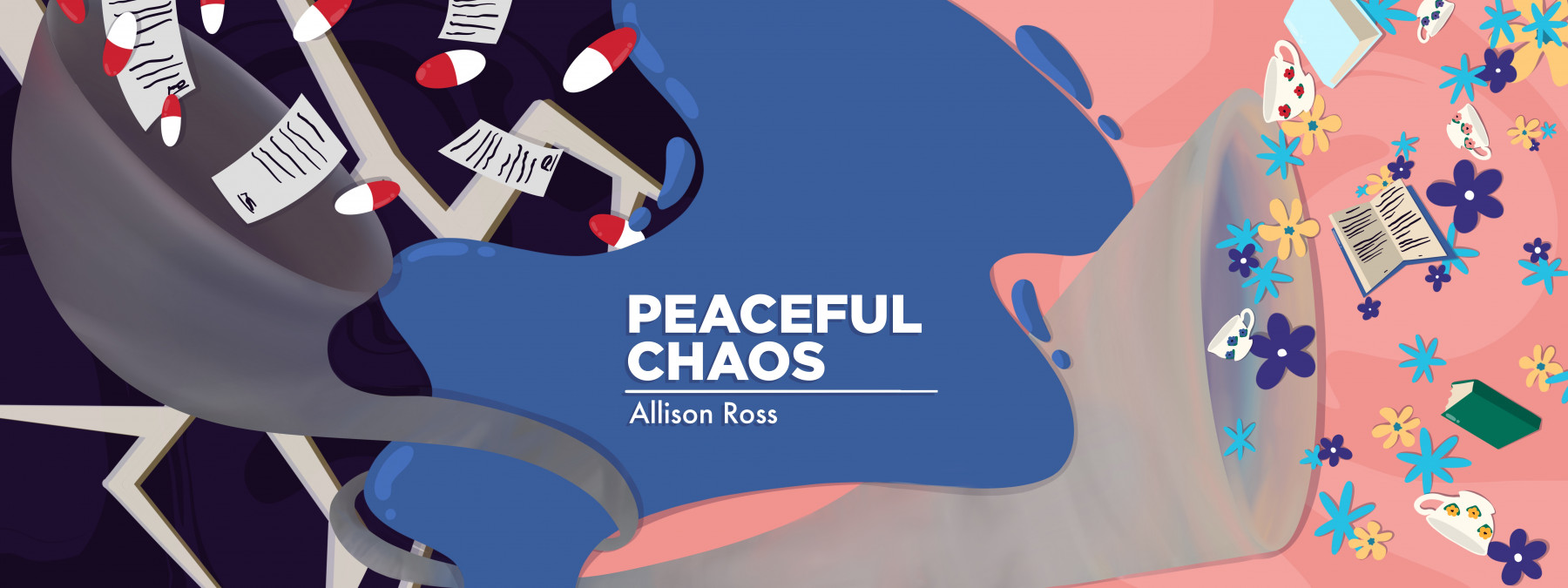My Exhausting Experience at the Emergency Room
Written by |

I wrote this week’s column from the hospital.
I debated whether I should — after all, improving my health is priority number one — but what better way to illustrate the vasculitis lifestyle than reporting straight from ground zero?
For almost a week, I had a forceful cough that brought up clear fluid. (Not blood, which I carefully watched for, as it could be a sign of a lung hemorrhage and a possible vasculitis flare.) That was my biggest cause for alarm, but I was also incredibly tired, and ran a fever of 101-102 F for several days.
I had to make that old familiar decision: When do I contact a doctor? It’s sometimes difficult to know what I’m able to fight off on my own, and what’s more severe. But this was the sickest I’d been in almost two years. I knew I shouldn’t ignore that.
My family was worried and urged me to seek medical care. After a consultation with my rheumatologist, who recognized possible COVID-19 symptoms, I heeded her advice and went to the emergency room for testing.
Though I was fatigued and felt weak, I had to drive myself to the emergency room downtown. Commuting, parking, and walking to the check-in desk took so many spoons (a term that refers to energy limitations). By the time the ER employee pointed me to the waiting room, I was relieved to sit down and rest, though I ended up waiting for over three hours.
I’d forgotten how uncomfortable the ER is. The chairs are hard and too small, and the bustle of activity makes it difficult to rest, even if I’m exhausted. I had to remind myself that the visit was necessary and fight the urge to give up and go home, back to my warm bed and my creature comforts. Finally, a nurse directed me to a private room.
Several hours passed in that tiny space, separated from others only by a thin curtain. Two attendants came in — one to take my vitals, another to administer an EKG and a blood test. Then, the first returned to wheel me to the X-ray room, where we took images of my chest to determine the reason for the wet cough.
The emergency room doctor on staff was kind. He told me I had COVID-19-induced pneumonia. “Yikes,” I thought. “A double whammy.” It explained why I had fluid in my lungs and felt so relentlessly exhausted.
When the doctor left me alone to rest, I dashed off a few messages to my teaching studio and other performing obligations: “I sincerely apologize, but I can’t do any more work until January.” Now my schedule was clear, allowing me to focus 100% on recovery. I dozed off.
After my test results came back, I discussed my options with the medical team. There was nothing we could do for the pneumonia, as it was a viral strain. (At least a bacterial infection would’ve allowed for antibiotics.) Regarding the COVID-19, there was an outpatient treatment available, but it would require me to return to the hospital the following day. I didn’t know if I had the strength for that, so I asked my doctor if it would be safe for me to go home and fight this off with time, rest, and fluids. He said yes.
Finally, after nearly eight hours in the emergency room, I was discharged. I drove home completely devoid of energy, but was relieved to have answers.
For the next five days, I did nothing but lie on the couch, recuperating my strength. A few times I felt well enough to bundle up and play ball outside with my German shepherd, who was itching for exercise. A day or two later, we went on a short walk. It was difficult to breathe deeply, but I made it, and congratulated myself on this small victory. I knew I had to be patient with myself and allow time for healing, as frustrating as it was.
Now, as I finish this column, I’m feeling the best I have in weeks. This episode was tough, but I took care of myself and will be back to my energetic self soon. I learned about self-advocacy, pacing myself, and making decisions about my health. I’ve got new antibodies and a new appreciation for the baseline health I maintain in remission.
I’m grateful to have good medical care, attentive healthcare staff, and people who care enough to urge me to seek help. Finding peace when ill isn’t easy, but it can be done.
***
Note: ANCA Vasculitis News is strictly a news and information website about the disease. It does not provide medical advice, diagnosis, or treatment. This content is not intended to be a substitute for professional medical advice, diagnosis, or treatment. Always seek the advice of your physician or other qualified health provider with any questions you may have regarding a medical condition. Never disregard professional medical advice or delay in seeking it because of something you have read on this website. The opinions expressed in this column are not those of ANCA Vasculitis News or its parent company, Bionews, and are intended to spark discussion about issues pertaining to ANCA vasculitis.







Greg Patterson
I'm interested to learn what medication for covid you used? Monoclonial antibodies of some type? I'm waiting for the preventative vaccine that was just released from trials, but they are in very limited supply. This is supposed to be specifically for immunosuppressed and gives up to 6 months potential covid protection or at least if you get exposed it would be a mild effect. It's very hard these days to go out and risk covid, but as a health care provider myself, I'm in a rock and a hard place with GPA. Thanks for posting.
Allison Ross
Greg - for multiple reasons, I opted not to have treatment at the hospital. I fought symptoms naturally, and went off my immunosuppresant for about a week and a half according to my specialist's direction. Within a few days I had mostly recovered. It wasn't pleasant, but I'm grateful to be in remission and able to fight off sickness safely, as I know not every autoimmune patient can do so. I'll keep an eye out for the vaccine you mention!
Verna Mryglod
Great to hear that you are doing better and recovering. Your struggles with ANCA and strength to help heal is heart felt and offers hope for me. Thank you so very much for sharing your experience.
Michael Black
In the fall of 2019, they suggested I get the pneumonia vaccine, so I did. No idea if it did anything.
They said I'd had pnemonia when I landed in the hospital earlier that year, which gave the GPA diagnosis. I have no recollection, other than it taking a lot of efgort to breathefor months.